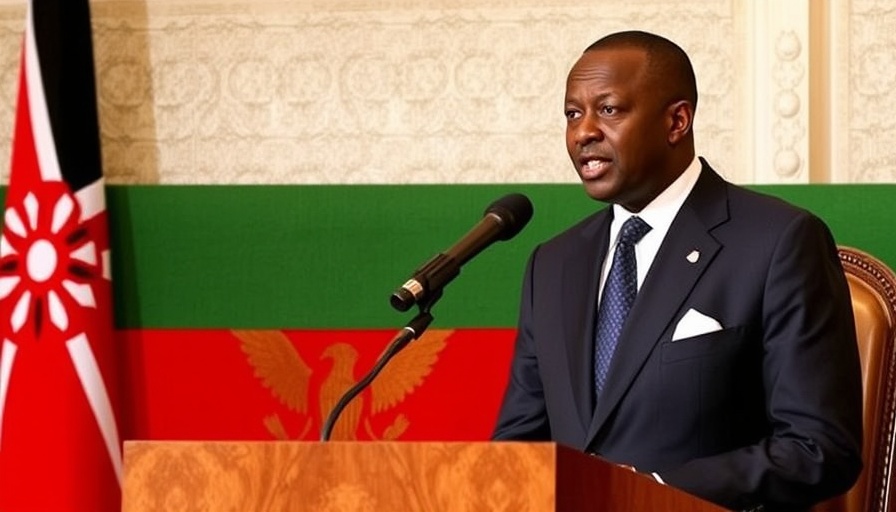
Why Visa-Free Movement Matters for Africa's Integration
Kenyan President William Ruto has put the spotlight on the pressing need for a visa-free Africa, aiming to enhance intra-Africa trade and boost economic opportunities across the continent. By dismantling visa barriers, Ruto argues that countries can unlock significant economic potential, standing in line with a growing consensus among African leaders and economists.
The Case for Visas-Free Policies
Recent dialogues among African ministers have illuminated the transformational potential of visa-less travel within the continent. The African Development Bank (AfDB) and the African Union (AU) have championed a streamlined approach, underlining that visa-free policies can not only facilitate trade but also pave the way for significant tourism growth, much like the successful implementation seen in Rwanda.
Rwanda: A Model for Success
Rwanda's experience serves as a noteworthy example of how open borders can foster security, rather than compromise it. As highlighted by various officials at a recent summit, the Rwandan model shows that visa-free travel can stimulate economic activities and heighten security by encouraging transparent travel channels rather than fostering illegal movements.
Integration Efforts by African Leaders
The increasing openness of borders is reflected in the Africa Visa Openness Index, which reports that 39 African nations have made strides towards easier mobility since the inception of the metrics. Leaders stress that while progress has been made, much work remains to establish a truly interconnected Africa. Such integration could fortify the continent’s bargaining power on the global stage, as local economies become interdependent.
Tourism: The Unrealized Potential
Kenya has positioned itself strategically as a pivotal player in this emerging landscape, moving towards visa-free entry for most African countries to encourage tourism. The resultant increase in tourists would not only boost hotel and airline industries but could also augment cultural exchange within the region, proving beneficial for all participating nations.
Challenges Ahead
However, the vision of a visa-free Africa is not without challenges. Regulatory frameworks need to adapt to handle increased travel flows effectively, ensuring that local infrastructures can manage the demands placed upon them. Additionally, airline, hotel, and travel agencies must collaborate closely to ensure a seamless travel experience, addressing any potential hurdles posed by existing visa regulations.
Looking Forward: What This Means for Africa's Future
As African nations, especially Kenya, chart the course towards a visa-free regime, the implications can be profound. Increased mobility may drive economic growth, enhance cultural ties, and solidify intra-regional relationships. Policymakers and business leaders will need to strategize effectively to harness these benefits.
Ultimately, Ruto's call for a visa-free Africa resonates with broader calls for regional integration, and it is clear that overcoming borders will require collective effort and a commitment to shared prosperity. The removal of visa barriers stands to revolutionize both trade and tourism across the continent, propelling Africa into a more cohesive economic future.
 Add Row
Add Row  Add
Add 


Write A Comment